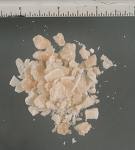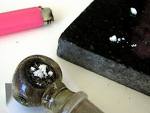Remember the ostensible crack-baby crisis of the 1980s? I do, vividly. I was a kid then, and scare tactics were all the rage. I spent half of junior high watching b-movie filmstrips about the slippery slope from smoking a joint to shooting heroin to dying alone in a gutter while belatedly remembering mom. Feel a rising tide of hysteria all of a sudden? This is your brain on the '80s.

Of all the forms that hysteria took, one of the most egregious was the fate that was forecast for so-called crack babies. Infants born to crack-addicted mothers, we were told, would be so emotionally and intellectually stunted they would lack true personhood. They wouldn't be able "to have consciousness of God." (That's courtesy of then-Boston University President John Silber.) They would grow up to be low-IQ, high-aggression "super-predators" -- a kind of "bio-underclass."
That quote comes from a 1989 Washington Post article by Charles Krauthammer (who in turn borrowed it from Douglas Besharov of the American Enterprise Institute, which should've been a tip-off). Krauthammer went on to describe the crack-baby problem as "not stuff that Head Start can fix... This is permanent brain damage... The future is closed to [these babies] from day one. Theirs will be a life of certain suffering, of probable deviance, of permanent inferiority. At best, a menial life of severe deprivations." So dreadful was their fate, he concluded, that "the dead babies may be the lucky ones."

Oh, really? Tell that to the grown-up crack babies featured in a new Washington Post article. "Once Written Off, Crack Babies Have Grown Into Success Stories," reads the headline on an article from Sunday's paper. The article amounts to a retraction -- except that only in passing does it acknowledge the Post's own role in the mass writing-off of a generation of already hard-on-their-luck kids. That's not to say that Krauthammer was the only perpetrator of the Great Crack Baby Myth. Far from it. In a 1986 speech, President Reagan called on the news media to use "your enormous influence to send alarm signals across the nation." The media heeded him, all too well. There might not have been a crack epidemic, but there was definitely a crack-baby story epidemic.
Regrettably, there's no comparable surge of stories to correct the myth. True, the Post piece follows in the footsteps of "The Epidemic That Wasn't," a similar article that appeared last year in the New York Times. Overall, though, the effort to challenge and correct the record has been unimpressive -- especially given that (as the folks at Fairness and Accuracy in Reporting have astutely pointed out) responsible scientists and thinkers have questioned the crack baby narrative from the very beginning.

That we haven't had a wider reckoning with our mass delusion is disturbing, for three reasons. The first is that the crack-baby hysteria helped set the stage for a lot of enduring social policies, from welfare reform to the War on Drugs. The second is that failing to reckon with these moments of mass wrongness ensures that we will learn precisely nothing from them. In particular, it ensures that the media will continue to exploit incomplete information in order to sell stories that mine the ugliest stratum of the American psyche -- the one where the equation between race, poverty, idiocy, immorality and addiction is always already written.
The third reason we should do everything we can to correct the crack-baby mistake is the kids themselves. Their lives aren't all easy -- some suffer from ADHD or impulse control or impairments to executive function -- but they are athletes and college kids, they hang out with their friends and hold down jobs and hug their moms. No way would they be better off dead. On the contrary: their lives are correcting the record that the rest of us are not. Just as you can smoke pot and not wind up a homeless heroin addict -- in fact, just as you can do a little blow and still somehow scrape by in life -- it turns out that you can be born to a crack addict and do just fine.

This is not to say that crack has no effects on a developing fetus. But whatever those effects are, they are far more mild than feared. "Are there differences? Yes," says Barry Lester, a psychiatrist quoted in the Times article. "Are they big? No." Your kid will suffer more if you drink alcohol while you are pregnant than if you smoke crack. Your kid will suffer more from being raised in an environment of poverty, neglect, or abuse. Saddest of all, your kid will suffer more from the imposition of low expectations and negative labeling -- like, say "crack baby."